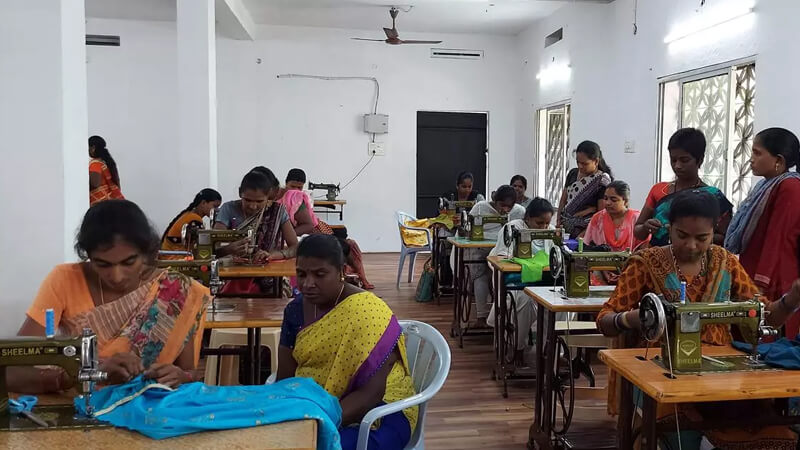
We need more than just acknowledgement and gratitude to build the Bharat of our dreams
"I never paid attention to the fact that I am eating leftovers, as the last one to eat every day, while trying to serve the best food to my family. It was only when 'Didi' told us that we all need good hot food to feel happy and be healthy, that I noticed it."
This statement from a young woman participant in a nutrition and mental health awareness session from Rajasthan holds significance on this International Day of Rural Women, with the focus on 'Rural women cultivating good food for all'. While rural women play essential roles in getting food to the table for their families, they may not be accessing the same food for their own health and wellbeing equally.
The current status of rural women's health and nutrition corroborates this story. More than 80% of rural women are engaged in the agricultural sector as farm labour or as support to their farmer family. National Family Health Survey 4 data (2015) shows that a quarter of women of reproductive age are undernourished and almost half of them are anemic. This coupled with early marriage of girls is leading to an intergenerational cycle of disempowerment.
Promising Efforts
This issue is being addressed by the government, philanthropy and civil society collectively working to improve rural women's access to health and nutrition, livelihood and financial independence. Government's Poshan 2.0 scheme, National Rural Livelihoods Mission, Pradhan Mantri MUDRA Yojana (PMMY), Stand-Up India Scheme, Prime Minister's Employment Generation Program (PMEGP), and NITI Ayog's Women Entrepreneurship Platform all target the challenges of rural women.
NGOs such as SEWA, Mann Deshi, Swayam Sikshan Prayog, and Swaraj University have created successful role model rural women entrepreneurs. Philanthropies including Bill & Melinda Gates Foundation, Tata Trust, NASSCOM Foundation, Piramal Foundation, Edelgive Foundation, and Ola Foundation are enabling rural women with financial digital literacy, vocational skilling and livelihood opportunities.
The Root Causes
Despite these efforts, many women still put themselves at the far end of the food table, hesitating to express their choices. The reason behind this marginalized status is the deep-rooted system of patriarchy. An international study pointed out that only 5% of the total philanthropic investment in women is for explicit work on gender (OECD- Insights on Philanthropy for Gender Equality 2019). This is primarily because changing patriarchal mindset is complex, time-taking and difficult to measure.
Gender Sensitization
In this context, more can be done:
Increasing investment in programs that directly address patriarchy is critical. Men and boys need to inculcate 'Positive Masculinity' to become empathetic and equipped to recognize inequality.
A young man in such a program burst into tears during a reflection exercise about the difference in his life and his sister's life. He and others took an oath to ensure their sisters get equal opportunities. Including gender equality and 'Positive Masculinity' in school curriculum and government schemes for youth will help scale these interventions.
Training on these issues needs to be compulsory for last mile workers, officials, and all elected representatives from Panchayat to parliament. Grassroot organizations working with rural women need investment in institution building.
Finally, endowing rural women with easy access to smart phones, laptops, internet and digital skills will tilt the power balance in her favor. Examples include a rural bride informing her husband about crop prices from her laptop, or a rural woman taking online tuition classes during COVID transforming her family's outlook. A young rural woman with visual impairment is preparing for civil services with her family's support.
These examples show what's possible if we create a more equal and inclusive Bharat!
(The writers are Nandini Piramal, Chairperson, Piramal Pharma Ltd, and Neelima Pandey, Director, Piramal Foundation; views are personal)
This article was first published on 15 October 2023, updated on 16 October 2023, on The Hindu Business Line
TAGS
SHARE





